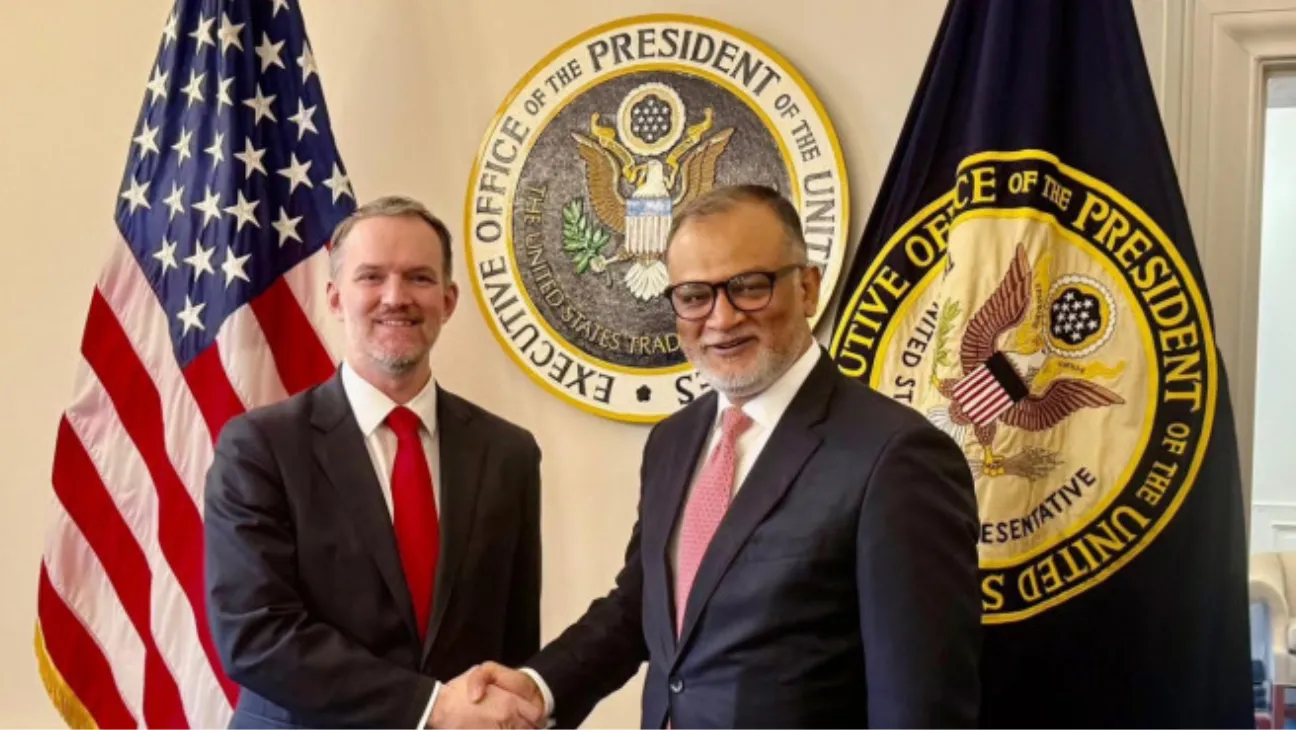The clock is ticking for Bangladesh. They’re racing to strike a deal with the US before a massive 35% tariff hike hits on August 1st, and a third round of talks is now in the works.
Commerce Adviser Sheikh Bashir Uddin, fresh off a trip to Washington for talks, gave reporters an update on Sunday. He couldn’t share the specifics—he’s under an NDA—but said the real work is happening now. He explained that different ministries are busy ironing out their positions, particularly on points raised by the country’s tax authorities.
“We are preparing for the next round of negotiation, and we hope to secure a meeting with the US next week,” he told reporters at his office.
Uncertainty Around Tariff Relief
Asked whether the US is considering reducing the additional tariffs originally imposed by the Trump administration, Bashir gave no clear answer.
“I am not sure about the reduction,” he said.
For Bangladeshi exporters, the 35% tariff is still a major concern. Many warn it could undercut their position in the US market. While there’s hope for change, leaders know global politics could shape the outcome.
Business Community Sees Mixed Signals
Several business leaders and economists attended a closed-door meeting with the adviser shortly after his return. Most participants described the meeting as vague on substance but sensed that the scope of the negotiations is expanding beyond traditional trade issues.
Dr. Muhammad Abdur Razzaque, who heads RAPID, suggested you have to read between the lines. He believes geopolitics is becoming the real story behind the government’s vague stance.
“There were no clear responses, so it’s difficult to grasp the full picture,” he noted. “But they seemed eager to show they were paying attention.”
Anwar-ul-Alam Chowdhury Parvez of the Bangladesh Chamber of Industries said stakeholders are assuming the commerce ministry is prioritizing national interest.
BTMA Director Razeeb Haider echoed that view, saying, “We conveyed our concerns, and the government gave us assurances. We remain optimistic.”
Political Weight Behind Trade Terms
According to one exporter who attended the meeting and spoke on condition of anonymity, the talks with Washington may be less about tariff lines and more about strategic leverage.
“The political issues seem to be bigger than the tariff itself,” he said. “It appears the US is using the tariff as leverage to extract broader concessions.”
Among the alleged demands from the US: reducing dependency on Chinese imports, avoiding future Chinese investments, and aligning with American sanctions on other nations.
There were also concerns raised over the trade imbalance, with US negotiators reportedly pressing for steps to narrow it.
Impact on Exporters and Competitive Concerns
Exporters say that if the 35% tariff goes into effect, it could weaken Bangladesh’s position against competitors like Vietnam and India.
“Unless our tariff rates are brought in line with theirs, we risk losing ground in the US market,” the business leader said. “But if the rates are similar, we’ll stay competitive.”
He noted that so far, only the UK has managed to strike a tariff deal with the Trump administration.
Strategic Caution Urged
Selim Raihan of SANEM warned that the talks are increasingly straying into strategic and geopolitical terrain. “The US is leveraging the tariff issue to open up broader conversations,” he said.
He urged caution, especially if Washington introduces conditions that go beyond trade. “If any unreasonable political or geopolitical demands are placed, the government must proceed with caution,” he added.
Commerce Secretary Mahbubur Rahman, also present at the briefing, rejected reports that the US had demanded a 40% local value addition requirement for Bangladeshi products labeled as ‘Made in Bangladesh.’
“I have never heard of such a requirement,” he said.
Progress Behind Closed Doors
On Sunday, Power and Energy Adviser Fouzul Kabir Khan confirmed that the US is initially seeking a framework agreement covering several areas, including security concerns.
“There has been significant progress in the discussions between the US and Bangladesh,” he said at a separate press briefing.
Tariff issues, he explained, would come up in later stages. When asked about the nature of US security concerns, he deferred to Commerce Adviser Sheikh Bashir Uddin.
For now, the direction of the negotiations remains fluid. Business leaders expect delays, suggesting the talks may stretch beyond the original 1 August timeline. Still, they are watching closely and hoping for a resolution that protects Bangladesh’s economic interests without compromising too much elsewhere.









